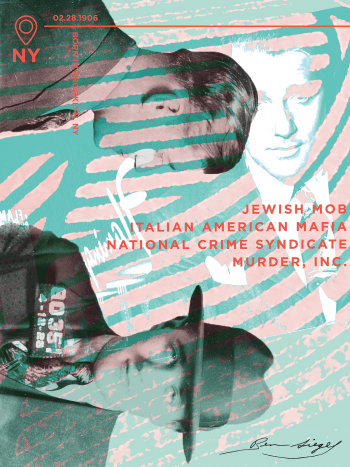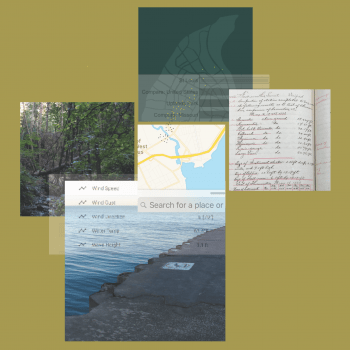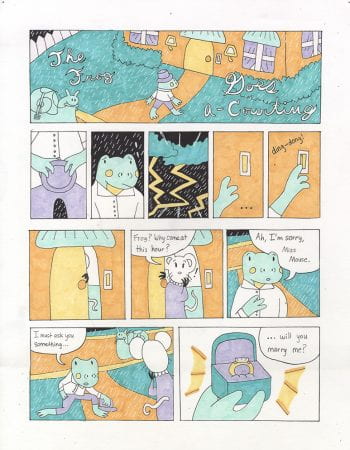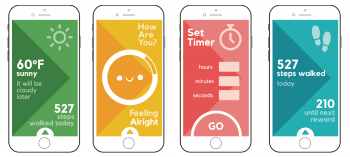F10 ART 297A
Image and Meaning
Taught by Audra Hubbell
T/TH 8:30 -11:20 am
This course explores the use of digital imagery in contemporary design practice through a range of analog

The Bugsy Case Lacie Lehman
and digital experimentation. Using a variety of methods from basic printmaking to emerging technologies, students will complete a series of image making investigations. The study of both hand and computer based approaches provides an opportunity to work beyond the constraints of the screen and build an understanding of how imagery can be used to enhance visuals, communicate ideas and convey meaning. This course counts as a sophomore- level major elective for students pursuing the BFA major in communication design.
F10 ART 433L
Applied Illustration
Taught by Ed Kinsella
M/W 8:30 – 11:20 am
This course will explore drawing and conceptual development in the landscape of professional picture-making and illustration. Using the lens of an applied professional process, students will make work that explores and establishes an artistic viewpoint. Focused research, idea development, formal experimentation, and class critique are vital to these goals.
Using this contextual practice, students will advance toward the development of an individual voice. This course is applicable to anticipated career directions in image making, illustration, comics, picture books and visual storytelling.
F10 ART 323K
Knitwear Design and Production
Taught by TBD
M/W 1:00 – 3:50 pm
This course will address the topic of knitwear design and production. Students will learn knitting fundamentals by hand, manual machine and computer-driven machine. Building on technical and design knowledge gained throughout the course, students will design and realize three-dimensional objects. These objects could be fashion apparel or art. Some production will be done by the student and some will be done in collaboration with a local knitwear company.
F10 ART 437N
Type as Image: Experiments on Press
Taught by Ben Kiel
T/TH 8:30 – 11:20 am
 Working in the Kranzberg Studio for the Illustrated Book, students will use printing to explore the expressive possibilities of typography both as language, and as image / illustration. Graphic shape, line, tone, color and type can all be used as raw materials in the construction of messages, stories and ideas. In this course, students will respond to prompts and create self-generated expressive and experimental projects that explore the language of design in a tactile form. Students will be introduced to both basic and advanced typographic knowledge as they ground thier work in the visual expression of language.
Working in the Kranzberg Studio for the Illustrated Book, students will use printing to explore the expressive possibilities of typography both as language, and as image / illustration. Graphic shape, line, tone, color and type can all be used as raw materials in the construction of messages, stories and ideas. In this course, students will respond to prompts and create self-generated expressive and experimental projects that explore the language of design in a tactile form. Students will be introduced to both basic and advanced typographic knowledge as they ground thier work in the visual expression of language.
F10 ART 437Q
Semiotics Studio: Designing Signs and Symbols
Taught by Augusta Toppins
M/W 1:00 – 3:50 pm
This course is about shaping meaning. Students learn the fundamentals of semiotic theory and its application to design practice. Students create signs and symbols for public spaces as well as experimental readings and social interventions. Through exercises, projects, and class discussions, students explore the world of meaning-making including: categories of signs, the possibilities of interpretation, and how signs work to normalize cultural practices and perceptions of truth.
F20 ART 331A
Visualizing the Data of Place
Taught by Heather Corcoran
T/TH 11:30 – 12:50
What gives a place its particular identity? This course will explore that question through the lens of data visualization. Students will visualize data about St. Louis and other sites of interest. They will learn to access, develop, and visualize data to represent natural

Map of Locations
characteristics such as topography and elevation, water levels, air temperatures, green space, etc. They will also visualize human factors such as occupancy and vacancy, employment, economic equity, public infrastructure, transportation, and crime. There will be three projects spanning print and digital delivery. This course is open to any university student interested in the display of data for representational impact.
F20 ART 235K
Animated Worlds
Taught by Jon Navy
T/TH 8:30 – 11:20 am
This course explores traditional and experimental 3D animation in a short film format. Beginning students will learn polygon and NURBS modeling, texturing, lighting and rigging props and characters in Maya. A storyboard, animatic and final rendered short will be developed for two major projects. Advanced skillsets include development, character design, 3D modeling, rigging, visual effects, sound, and rendering. No prerequisites or previous experience required. Can be taken multiple times at either beginner or advanced level. Open to freshmen through graduate level students across the university. Graduate and advanced students can build independent projects with permission of the instructor.
F20 ART 337A
Illustration Entrepreneur
Taught by Linda Solovic
T/TH 1:00 – 3:50 pm
 In this course, students will create images appropriate for surface design application to products. Students will work towards developing icons and motifs using shape based illustration, design, composition, hierarchy and thoughtfully considered color. Exploration will include visual content, artists, audiences, and trends in a fluid marketplace. Projects for this course will be in the applied context of gift and home decor markets, fabric design, stationary products, and toys. All skill levels of drawing and digital proficiency are welcome. Appropriate for art students whose work focuses on images/package, Design minors and non-Sam Fox students interested in developing visual products
In this course, students will create images appropriate for surface design application to products. Students will work towards developing icons and motifs using shape based illustration, design, composition, hierarchy and thoughtfully considered color. Exploration will include visual content, artists, audiences, and trends in a fluid marketplace. Projects for this course will be in the applied context of gift and home decor markets, fabric design, stationary products, and toys. All skill levels of drawing and digital proficiency are welcome. Appropriate for art students whose work focuses on images/package, Design minors and non-Sam Fox students interested in developing visual products
F20 ART 241E
Digital Game Design
Taught by Eric Nunez
M/W 1:00 – 3:50 pm
Designing a digital game that is both entertaining and usable requires understanding principles of user interface, game theory, and visual design. In this course, students will be introduced to basic game design strategy and practice, in the development of their own game projects. Using both paper and the digital screen as a canvas for design, students will explore gameplay iterations, as well as create visual components. No prior experience in visual design, coding or digital games is necessary.
F20 ART 135I
Communication Design I
Taught by Gary Karpinski
T/TH 6:00 – 8:50 pm
An introduction to the basic principles of communication design. Learn practical skills that will enhance the effectiveness of presentations, resumes, and other forms of print and/or digital communication. Students will be introduced to two-dimensional design, typography, page construction, and the integration of word and image. Recommended for students outside of the Communication Design major.
F20 ART 223K
Business of Fashion
Taught by Claire Thomas-Morgan
M/W 11:30 – 12:50 pm
This seminar course is an academic analysis of the business of fashion focusing on the  following: marketing fashion products, consumer behavior, brand development, markets, promotion / distribution, and attention to emerging technologies. Students will study fashion merchandising and product development, including seasonal deliveries, line development, basic costing practices, and retail math. Case studies will engage students in current fashion business practices. Open to all students.
following: marketing fashion products, consumer behavior, brand development, markets, promotion / distribution, and attention to emerging technologies. Students will study fashion merchandising and product development, including seasonal deliveries, line development, basic costing practices, and retail math. Case studies will engage students in current fashion business practices. Open to all students.
F20 ART 125I
Making Comics
Taught by Dmitri Jackson
M/W 8:30 – 11:20 am

Amanda Thompson, The Frog Goes A Courting
From hieroglyphics to newspapers, drawn pictures in sequence have told stories for thousands of years. This course is an introduction to writing and drawing short form comics. In readings and discussion, students will explore a wide variety of genres and visual approaches to comics. Through exercises and assignments students will learn how to make clear and evocative comics. All skill levels of drawing experience are acceptable.
F20 ART 2362
Advertising I
Taught by Frank Oros
T/TH 1:00 – 3:50 pm
This hybrid studio/lecture course introduces students to the field of advertising by defining its role in American culture and economy and engaging students, hands-on, in the processes of professional practice. The course consists of presentation and discussion of contemporary work, and provides students with opportunities to create advertising campaigns across broad product and service categories and a range of media. Major emphasis is placed upon the creative disciplines of advertising design and copywriting. Experience in copywriting and design is not necessary.
F20 ART 236A
Interaction Design: Understanding Health and Well Being
Taught by Enrique Von Rohr
F 8:30 – 11:20 am
Through a blend of presentations from practitioners, classroom lectures, readings, discussion

NEXT
A behavioral activation tool
By Jefferson Duan, Claire Wild, and Meredith Liu
and hands-on exercises, this class will engage principles and methods of interaction design within the context of health challenges. Broadly defined, interaction design is the practice of designing products, environments, systems, and services with a focus on behavior and user experience. We will take on an in-depth challenge in the area of health and well-being and work in cross-disciplinary design teams with an external partner organization. Students will gain experience in planning and executing a human centered design process featuring research, ideation, synthesis, concept development, prototypes and a final presentation, which may include visual design, animation, and sound. Students will work in teams to develop several intermediate project deliverables, such as prototypes and sketches. No prior coursework is necessary though experience with Adobe Photoshop, Illustrator and InDesign are helpful. No prerequisites. Class meets as a group every Friday. Optional hours on Wednesdays between 8:30-11:30 am to meet with faculty for additional help or feedback outside of class time. Open to sophomores through graduate students across the university.
F20 ART 236P
Design in Social Systems
Taught by Jude Agboada
T/TH 8:30 – 11:20 am
This multidisciplinary seminar course will cover historical and contemporary contexts of socially engaged work within art and design disciplines. Students will explore various processes that artists and designers use to address, influence, and inspire change around systemic social issues. In addition, through in-class collaborative workshops, students will apply a “systems thinking approach” to a select number of real-world social issues in order to gain a better understanding of how these issues are shaped by policies and individual experiences. This course will also include a final group project completed in partnership with a local community-based organization in which students will apply creative-problem solving processes such as human-centered design, equity-centered design, , design activism, and social justice to arrive at collective impact. Models of social change from other disciplines such as social entrepreneurship and innovation, non-profit models, and public-interest design will be featured through guest lectures, field trips to community-based organizations, case studies, readings and written reflections.
F20 ART 171
Intro to Letterpress
Taught by Michael Powell
M/W 6:00 – 8:50 pm
This class will serve as an introduction to printing with the Vandercook handpress. Through a series of assignments students will learn a systematic approach to planning, arranging and printing type on a page. The students will receive a basic introduction to typography, history of letterforms, and history of the book. The mechanics of relief printing with the cylinder proof press, ink composition, and resolution of the typographic image will also be explored. As an exploration of the publishing process students will produce a chapbook of a short literary work. The class will primarily focus on typographic composition, but one assignment will employ a combination of word and image.
F20 ART 2363
Advertising in the Digital Age
Taught by Frank Oros
T/TH 11:30 – 12:50 pm
This course examines advertising as a powerful force in contemporary culture, and explores the increasing ways consumers experience branded communication through digital technologies. We will identify and study “game changing” developments in advertising communications; changing dynamics in audience behavior-including the ability to “opt out;” the advertising industry’s adaptation to digital technologies; and finally we’ll speculate on the future of advertising in an era of mobile computing. Advertising in the Digital Age builds on The History of Advertising. It is recommended, but not required, that students have completed the first course before enrolling in this one.